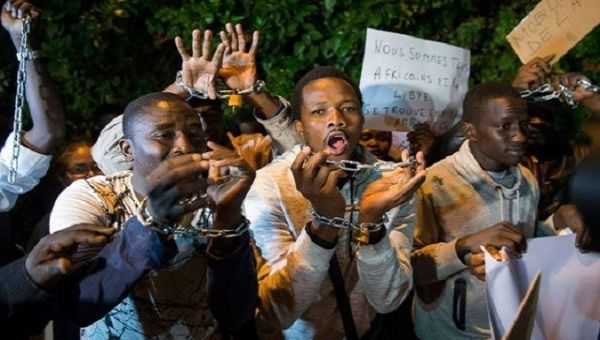On Refugees, Immigration and Inequality

Africans, including some Nigerians, being sold as slaves in Libya once again shows that issues of refugees, economic migration, inequality and climate change, and the intertwined relations between them, are too important to be ignored.
Timed to coincide with the Davos gathering of the rich and powerful in January, Oxfam issued its annual report on inequality which shows that inequality has consistently increased over the last 30 years both within countries and between countries.
They report that only 41 of the richest people in the world now have the same amount of wealth as the poorest half of the world’s population, 3.7 million people. It also shows that almost all the increase in global wealth (81%) went to the richest 1% whilst the poorest half of the world saw no benefits.
Whilst inequality has increased greatly within Europe, inequality has also increased dramatically between Europe and Africa. There are many poor and unemployed people in Europe, but the youth of Africa find it even harder to find decent work. As a result, many young Africans including some Nigerians, attempt the hazardous journey to Europe. According to the International Organisation for Migration, there are up to a million migrants in Libya. Of these, 5,500 are estimated to have travelled from Nigeria.
The reaction of many European governments has been to tighten immigration controls which makes the journey to Europe and life in Europe for ‘economic migrants’ even more hazardous and stressful.
This is often under pressure from populist and right-wing movements who blame immigrants for lack of jobs, public services and austerity. Unfortunately, many people have accepted these lies and, as a result, fascist parties have grown in many European countries and are now part of the government in Austria, and Hungary.
As immigration controls in ‘Fortress Europe’ have been tightened so some unscrupulous people have been exploiting the situation. Traffickers charge high prices to cross the Sahara to places like Libya and even higher prices to cross the Mediterranean Sea to Europe.
Others are taking migrants hostage or selling them as slaves. Many people pay the ultimate price to try and enter the supposed paradise of Europe. It is estimated that 13,000 people died trying to get to Europe in 2014.
These restrictions on immigration have been mirrored in other parts of the world. President Trump is demanding a ‘wall’ to keep Mexicans out of the US. Australia is dumping ‘illegal immigrants’ on the Pacific Islands of Maunu and Mans. All this increases fears of immigrants, foreigners and non-indigenes making issues like the Fulani herders worse.
Climate change and population growth make the situation worse. By 2050 the population of Africa is expected to double (it has tripled in the last forty years), but crop yields may reduce by 20% due to increases in temperatures and changes in rain patterns. Climate change, desert creep and the drying up of Lake Chad contributed to the growth of Boko Haram and the movement patterns of Fulani herders. There have been two and a half million refugees from Boko Haram disturbances in North East. Most of them staying within Borno State or Nigeria.
The Federal Government reacted to the situation by flying a few thousand Nigerians back from Libya. But much more is required to reduce poverty and inequality. The Government should do more to create jobs and increase the minimum wage. Then Nigerians would not have to risk their lives attempting to find a better life in Europe.
by Drew Povey








